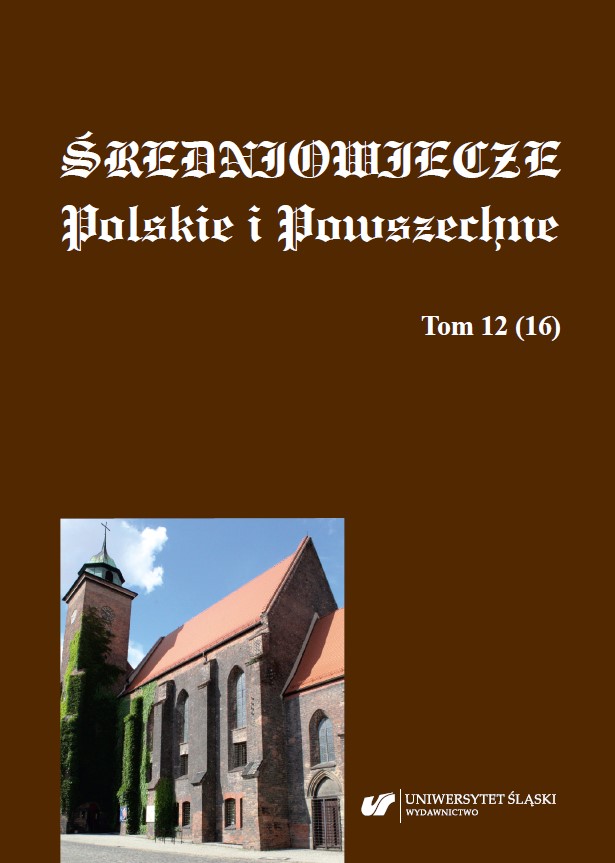Vytváření kacíře. Případ Bolka V. Opolského
The making of a heretic. The case of Bolko V of Opole
Author(s): David RadekSubject(s): History, Middle Ages
Published by: Wydawnictwo Uniwersytetu Śląskiego
Keywords: Bolko V of Opole; heresy; Jan Długosz; Kaspar Borgeni; Peter Eschenloer; Eneas Silvio Piccolomini; narrative strategies;the Hussite movement;
Summary/Abstract: The aim of the present study is to draw attention to the common stereotypes and literary topoi, which were used by medieval chroniclers to describe the so-called Hussite movement. I focus on the person of Bolko V (ca. 1400—1460), the Duke of Opole, who became infamous as an ally of the Hussite troops. For that reason, numerous authors, not only from Silesia, described him as a Hussite and heretic. Also the actions taken by Bolko V after the Hussite wars attracted the attention of his contemporary writers (e.g. Jan Długosz, Peter Eschenloer, Eneas Silvio Piccolomini, Kaspar Borgeni) in a negative way. As I try to show in my study, to a number of the authors mentioned above, the most important thing was Bolko V’s support for King George of Podĕbrady (Peter Eschenloer, Kaspar Borgeni), his attacks on the Polish Kingdom in the 1440s and 1450s (Jan Długosz), and his ally with the Hussites at the beginning of the 1430s. Those very actions taken by the Duke of Opole on the political map of his age decided about the fact that his contemporary chroniclers depicted him as a heretic. In the descriptions of his person we can find numerous stereotypes and rhetorical figures that were commonly used in the Middle Ages to refer to heretics. First of all, Bolko V is accused of pride, a deadly sin that a true Christian should avoid. Some authors mention Bolko V’s non-Christian sexual misconduct, and E. S. Piccolomini in this context additionally doubts his accountability. A common stereotype is the accusation of contacts with the Devil or dark powers. A peculiar stereotype is the Duke of Opole’s learnedness. Kaspar Borgeni mentions Bolko V’s studies at the University of Prague. As I try to show, the information concerning Bolko’s studies in Prague cannot be proven with any other source. Kaspar Borgeni uses that claim as one of his narrative figures in order to convince his readers that the Duke of Opole really was a censurable heretic. The picture of Bolko V created in such a way was very lively and the claims concerning the Duke of Opole’s heresy are formulated even today.
Journal: Średniowiecze Polskie i Powszechne
- Issue Year: 12/2020
- Issue No: 16
- Page Range: 121-140
- Page Count: 20
- Language: Czech

